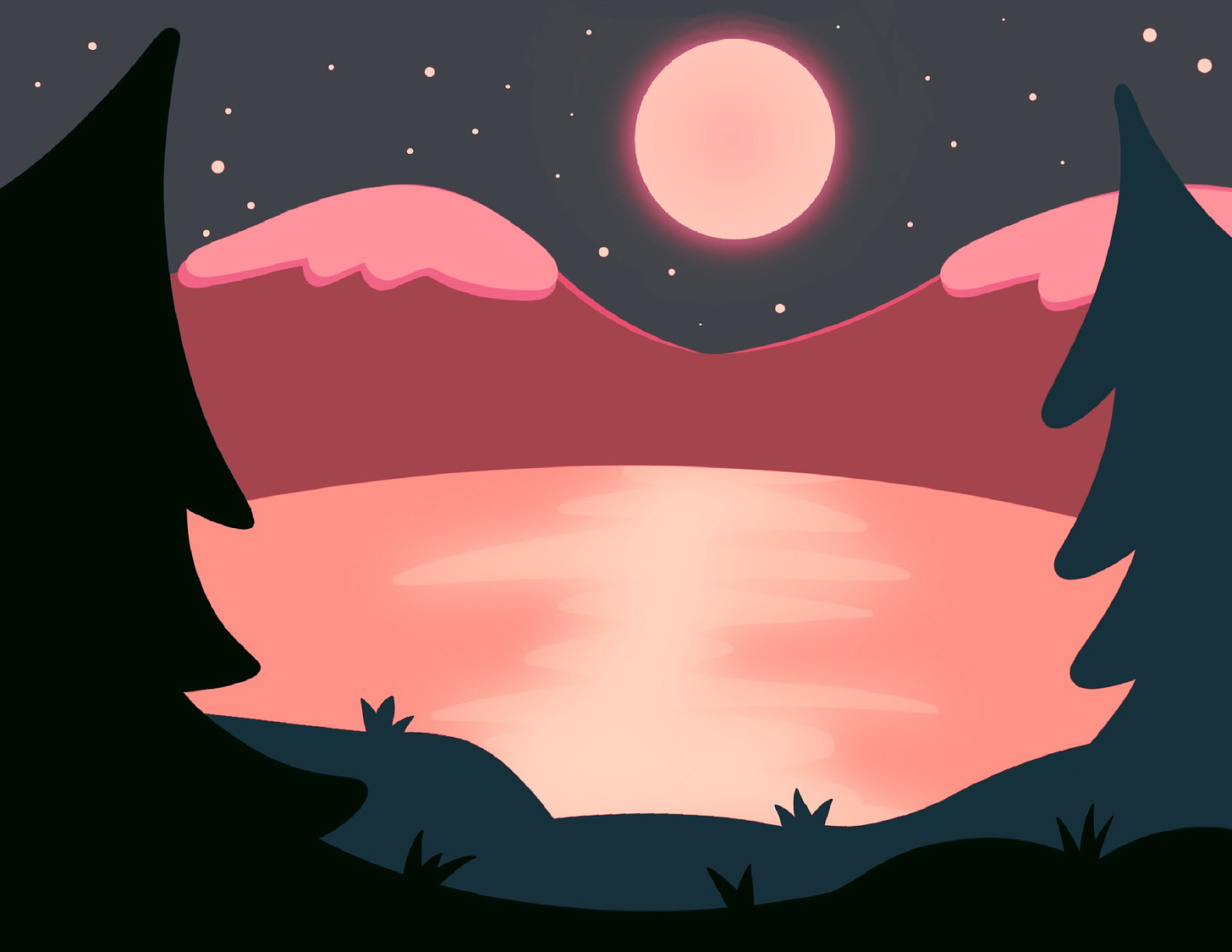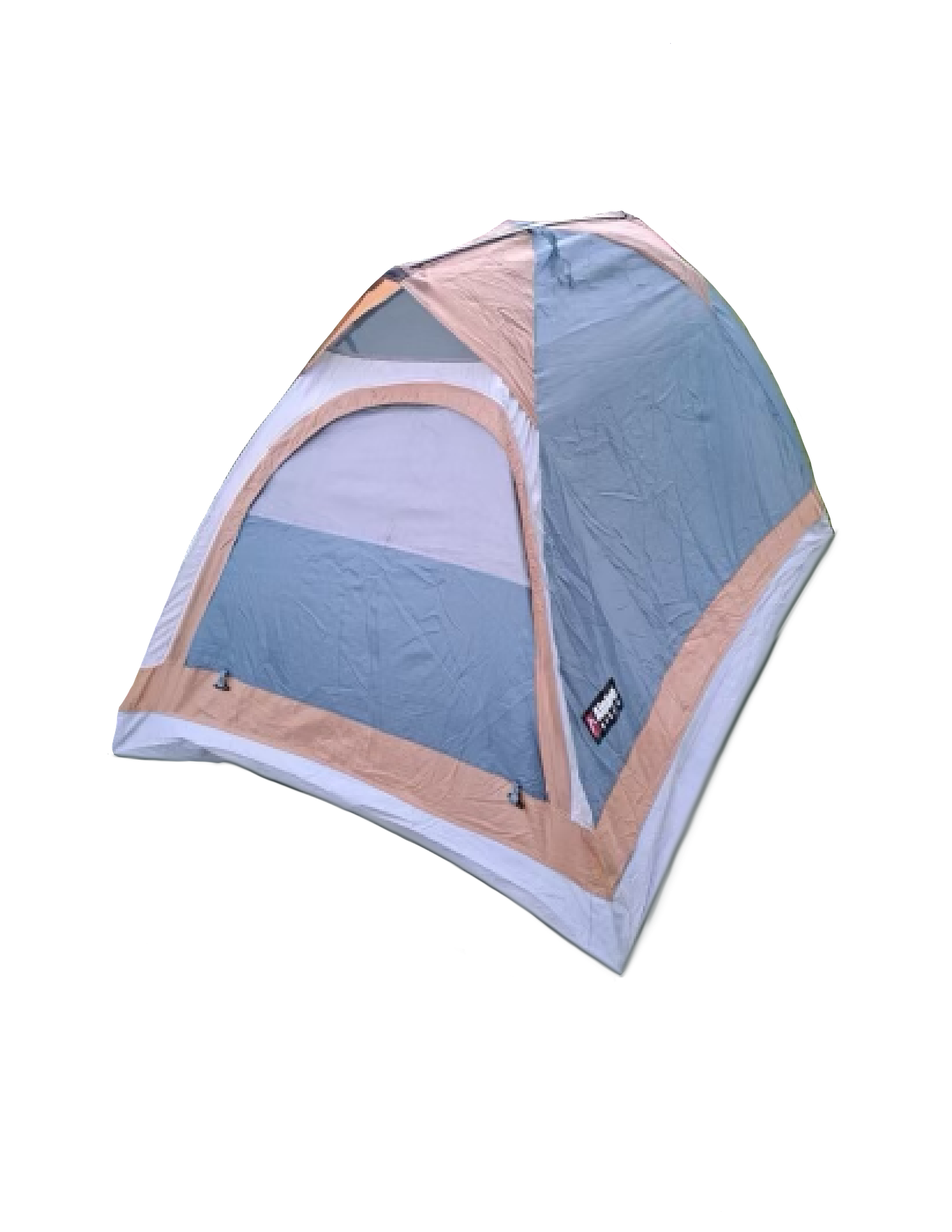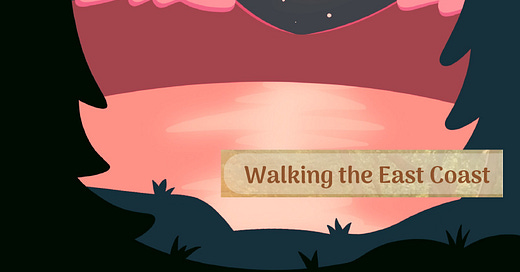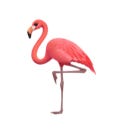Welcome, new subscribers and thank you! This is a monthly installment from Walking the East Coast, a serialized memoir. Here’s the PREVIOUS CHAPTER. Or if you wanna, start from THE BEGINNING.
“Her head”—Jill made a wide oh with her arms—“fit like this.” She breathed as if to fill her nostrils with the musk of fur and sighed like a purr.
Jill was small, in that floaty way of some girls in the liminal space before womanhood who you expect had had to sort of let go at some point and just get blown around to avoid being broken but had still come down gentle. Or maybe it was that I knew she was legally blind but could almost always pass as sighted. I sensed she was OK with Patty having filled me in, that she wanted me to know but wouldn’t have wanted to tell me herself. What I mean is, maybe the way Patty had sucked air through her teeth and shook her graying curls like she wasn’t telling me the whole story about how Jill’s blindness had come to her was why I imagined her with a past you might label “rough.” Or maybe I was projecting.
Anyway, I liked picturing her cradling the limp head of a five hundred-pound black bear. I imagined her leaning in, lips against fur, whispering something like, “There, there, Mama. I got you.” While the rangers drew blood from the fifty-pound cub lying beside them and then from the sow in Jill’s arms, combed each for ticks, clipped ear tags in place, she’d coo.
The phone on the station desk pealed. “That’d be for me.” She grinned and extended her arm toward the ringing, adding before pulling the receiver to her ear. “Coffee’s almost done. Help yourself.”
As I poured from the pot into two tin mugs, I tried to count how many days it had been since Mike D’s green chariot had dropped me here at the gateway to this forest. Not quite a handful. I had a few more days’ food supply.
“Patty says she’s making her deliveries again today,” Jill called, one hand cupped over the receiver. “She wants to know. Should she swing by and grab you? Drop you at the lake again?”
I chuckled and shook my head before I remembered and quickly said out loud, “No, I’m all good. Tell her thanks for the offer.”
The lake had been moist sand; lifeguards sporting whistle-red whistles; and, near the shore, water patchworked in crimsoning kids, plastic floaties, and glistening slicks of sunscreen. A chain-link fence funneled people in from the parking lot where Patty left me. An attendant sold me an iced fudge bar and microwaved hot dog, looking from me to a trio of chicken-legged boys, hovering. When I explained apologetically that a fifty was my smallest bill, he turned his do-you-see-what-I-must-put-up-with eyes to whoever was in line behind me before disappearing to retrieve my change.
“The lake’s beautiful,” Patty had said. The delivery route for her second job would make it easy for her to drop me off for the afternoon, and I could resume my hiking explorations the next day. “You’re going to love it.” The birch- and maple-lined road flying past the passenger seat had done nothing to disavow me of the pristine, lightly peopled lake I had seen ahead of me.
It was during the drive out that Patty had told me about Jill—how she always adapted, even right after ... Neither my recollection nor my log notes contain more than a few muffled words, crumbs from sentences Patty swallowed back about whatever had come before. As for after, though, Jill had spent her summers at the state forest office, learning every detail of the rangers’ and maintenance crews’ jobs and lives. She’d outsmarted the need to rely on others for transportation by way of a scooter local law enforcement turned a blind eye toward. She’d just finished her undergrad degree and applied to a master’s program. “We’re gonna miss her.” Patty had said, certain she’d get accepted.
Now the attendant was back. Pressing the wad of bills he handed me into my daypack, I secretly cheered on the boys, who’d now started up a game of hacky sack with a half-crumpled can of Dr. Pepper.
I found a spot on the sand and hadn’t yet finished my hot dog when a shadow appeared at my side. A lounge chair snap, snap, snapped into place. The man who came with it rose to his toes like a ballerina as he pulled T-shirt over head before sinking to the stage of his strong vinyl-strapped chair. Retrieving a bottle of Hawaiian Tropic from his bag, he squeezed oil into his palm and rubbed the hard mound of his stomach till it glistened. Next came a paperback thicker than all three books I’d brought in my backpack combined; on the cover, Fabio’s hair blew in the wind, and a heaving bosom pressed against ribbon toward freedom.
I was underscoring the line breaks in Gerry LaFemina’s “Poem Written on the Back of a Runaway’s Note” when my sandmate leaned over, pulling sunglasses to the bridge of his nose. “I’m Flip.”
Flip came here all the time. This had been his spot since the girls were kids, and he’d brought them here to let them run around. The novel, lying open on his belly as he chuckled at a memory, bounced. I imagined the ink of a torrid kiss melting into taut skin. Flip had stopped eating meat awhile back to prove a point to his doctor. He’d never had more energy or slept better. But not an ounce of the weight had come off. Grown up now, his girls wouldn’t dream of traveling rough like I was doing. Both had turned into their mother—for whom he held no ill will. Fancy resorts-only ladies. The number of bags required for just a weekend. You should see it. But damn, did they have their mother’s looks too.
The sun was making googly eyes at the lake, who responded willingly—its far edges pinkening as mirrored trees stretched across its surface—when Trip’s voice broke into my pen-and-log reverie. “You independently wealthy?” he asked. “Cuz if you are, I’ll propose marriage right now. And I’ll go through with it.”

Hearing Jill say goodbye to Patty and return the phone to its cradle, I brought the second steaming mug to the desk and set it next to her.
“So, you hiked out to Ghost Lake yesterday?” she said.
Now Ghost Lake—that one had been the lake of my heart’s imagining. Sunlight painting undulating lily pads, fallen logs and meadow, and lime-colored moss patches near the shore with a brush dipped in endless possibility. I told Jill about the disappearing frogs on my way out and the hawk that had watched me nap and that I was thinking of heading back out there tomorrow, exploring in the opposite direction today.
“You walked right past a den with a mama and cub, you know.”
I shivered and sipped from my mug. A ranger had told me before I’d hiked out that there was a den “out that way.” But now an image popped into my mind—me stopping short to catch sight of frog shadows, oblivious to a protective sow, nose keened to the smell of me and the granola in my pack a paw’s length away.
My first conversation with Patty, by phone, had alerted me to the possibility of bears. I’d called, back when I was still in Baltimore. And though I’d never heard of one before, when she asked, “You have a bear box, right?” I’d immediately understood what that was.
“Um,” I’d asked, “could you point me to where I could pick one up?”
Learning I was on foot, Patty had put me on hold, returning to say I should stop by the station and borrow one. My log offers no clue as to what drew me to this particular forest near a town called Hope. Had I simply opened a map in search of green? There would have been closer options. Still, I was glad I was here and that Patty had said it was just precaution when I’d asked, casual, “So, do you get many bears there?”
“Wait,” I asked Jill now, “it’s not the same pair you guys tagged, is it?”
“Oh, no.” That had been years back in a different part of the forest. “This one keeps to herself,” Jill added. “She’s cautious. You’ll be fine so long as she doesn’t think you’re getting in between her and her baby.”
“Makes sense.”
“You want kids?”
I gulped coffee to hide the wetness that sprang to my eyes, swallowed back the image of a carob-haired girl I hadn’t known now for twelve years and three months. How had it not occurred to me that the days would fall like dominoes from a maternity ward in not one but, rather, two directions? I’d worried endlessly the path I was yielding. On it, a toddler bouncing on a father’s shoulders, a kid letting go the hand of a mom who wasn’t just a kid herself at a primary blue door, an older girl learning patience in a baby sister’s tangled curls.
But what of the other line of days, the one I was on? What if I’d seen it? A wedding not quite three years from that hospital bed. A husband whose patient vigil—waiting for his bride to at last “grow up” and be ready to “start a family”— would feel more like a trap each year.
You know how burned bits stuck to the bottom of a pot can sometimes come loose only after a long soaking? It was still too early in the rangers’ station, Jill cradling my silence in her own. The divorce papers were so fresh I hadn’t yet published anything not in my married name. I think it’s only now—sharing this with you—that I can lift the lid off the pot. Maybe we can make sense of what’s come loose together.
I’d called my then husband foolish for thinking a baby an answer. Before that, I’d read his discomfort with discussing the baby I’d had before him as shame. But do you see how maybe we were both guided by time-honored lessons on what was to be kept in shadow, the value of just moving on, and what was the one path that could lead to fulfillment? Do you see how, if I’d already learned by the time we wed to secrete my sharp-edged pain in the soft folds of loneliness, he might have been following my lead? Maybe I married to reset a course I’d already not chosen when I placed my daughter in another woman’s arms. Then wasn’t it inevitable that him calling me to that course would feel like him stepping between me and her?
“I don’t know,” I finally said. It was true then.
Jill nodded. “I won’t have any.” I was surprised again, this time by the fierceness in her choice. Patty had told me Jill wanted to specialize in child psychology, to practice alternative methods like reiki and yoga. And I could imagine her with one or two of her own. I studied her face, lifted toward the sun that spilled through the window behind me and wondered what paths she was looking at or not seeing.
The bell on the door chimed. I told Jill I’d see her soon before she turned to help whoever had come in.
That evening, rain chased me inside my tent before dusk had laid itself at night’s feet. When a crack of thunder shook the headlamp I’d tied to the roof, I saw the half-eaten sandwich on my sleeping bag. In the shock of downpour, I’d forgotten the point of the bear box was to never take food into the tent. Nor had I deposited in it my bathroom bag with its sweet lotions and minty paste. Water sloshed against my tent’s roof. I’d be drenched before I made it to the box. But I had to go, didn’t I?
A not-so-distant crash froze my hand on the tent door zipper. Then crack. That one was definitely closer. How far was the den I’d passed right by? Subsequent cracks from whatever was—closing in?—in the pitch-black deluge made my decision. I crawled under cover of sleeping bag.

Dawn’s birdsong found me cozy and dry. The sun came out bright and hot as if to match the storm. I, equally eager to spread myself into the surrounds night and rain had closed to me, headed out right away—soon grinning at felled limbs that explained last night’s noises.
When Jill and the rangers had finished with mama and cub, they’d watched from a cautious distance as the pair awoke. Having decided against rubber bullets to chase them off, they awaited the sow’s decision. Charge or move on? Dazed, she nuzzled her cub. Did she smell through her stupor the rangers’ hands? Did Jill’s whispered love still echo in her? The sow turned her head in the direction of their scent before nudging the cub, and then the pair stumbled off into the trees.
Ravished by the time I returned to camp, I headed straight for the bear box. Something looked off as I neared it. Like it was … moving? Up close, I gasped. The lid was an undulating, black-and-amber thing. Throwing it open, I found inside, too, a thin layer of pollen, swarming with ants.
I salvaged what little I could with a brush made of shrub before falling into a cackling heap alongside the box.
It occurs to me now to think of the girl memorizing the face of her infant in a hospital bed. Of all the domino days she was about to topple, I think I’d show her this one. Because isn’t it just like life to be undone by ants while looking out for bears? And isn’t it just like the woman she wanted to become to be reminded by the undoing of Mike D’s promise that the clubs in town would be going off on a Thursday and that it was Thursday? To pack sun-dried gear, hike down to the ranger’s station, bid farewell to Jill and Patty, and call for an emerald escort?
📚 Did you enjoy this post? Please hit that restack button.
🌱 Thank you for reading! Thank you to those who’ve contributed to the Walking the East Coast soundtrack and those whose comments are helping to shape this memoir. You’re all helping me lift pot lids and see what’s come loose. Paid subscribers enable me to keep growing this work. If you’ve been digging what you’re reading here, please consider becoming one.
Or if you’d love to show appreciation for this work but aren’t a fan of subscriptions, click on the coffee mug below. It will take you to a magical place where any amount of support will be dearly appreciated.








“I think it’s only now—sharing this with you—that I can lift the lid off the pot. Maybe we can make sense of what’s come loose together.” This is such a beautiful chapter Holly. I felt like I walked both those paths with you, lingering on details of the past that keep us tethered to what if… And the offering of lightness to that young woman, a wisdom only gained through the hard hand of time.
Yes, this!: Because isn’t it just like life to be undone by ants while looking out for bears?